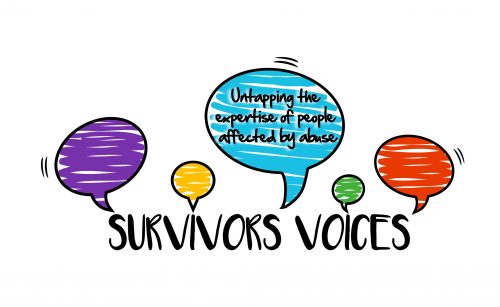The discussion is to be the starting point for an info-graphic, or webpage that Survivors Voices will promote to researchers involving and including Lived Experience Survivors as lead researchers, co-producers, or participants.
This is a working document: we welcome your comments and feedback as this document takes shape.
Today’s discussion covered:
- Previous Longitudinal Research which indicates the wish for support after the research project is over. “Treating Sexually Harmful Teenage Males”A longitudinal evaluation of a therapeutic community. October 2014
2. Participants offer their input because they want to see change and therefore feeding back the way change, or information dissemination, has happened as a result of their participation is important.
3. Participants want to speak for themselves and have agency over what happens as a result of their participation in terms of next steps. A case was sited where an Ethics committee stepped in to stop an arts based project going ahead when the survivors felt strongly that they did not need the ‘protection’ the ethics committee felt was compromised by the project. Julie Young “Domestic abuse survivors and the risks of speaking out” published in Eurig Scandrett ‘s “Public Sociology as Educational practice”. This is not a survivor-researcher study, however.
4. Participants want choice about how much information they are to receive both before and during the project. It is very individual as to how much pre and post information is offered/wanted and therefore it is the choice not the amount of information that is important.
5. The reality that research projects change from inception to completion and that promises to participants cannot be honoured for various reasons was discussed: this is an issue of transparency during the process to flag changes to original plans and promises. ‘Holding emails’ or updating emails were discussed as useful tools.
6. Contracting the relationship at the start of participant involvement is important, and needs to include this uncertainty.
7. Ethics committees need to be made aware of this lived experience list!

